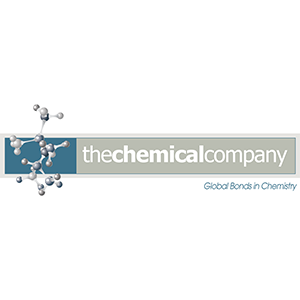Quote of the Day
“America will never be destroyed from the outside.
If we falter and lose our freedoms, it will be because we destroyed ourselves.”
Abraham Lincoln
Chemical Industry News
Research has revealed that plastics and shale gas are the leaders in the American business arena. Since 2010, the plastics industry has announced or anticipated nearly $47 billion in total U.S. investments to come online during the next decade. This includes $25 billion in new capacity to produce plastics and resins. By 2020, the capacity to produce the plastic resin most advantaged by shake gas, polyethylene, is expected to grow more than 59 percent. Polyvinyl chloride and polypropylene resins are also expected to benefit from an abundance of affordable shale.
Over the next decade, more than $19 billion in increased capacity to process plastics and related materials is anticipated to come online in the U.S. Over 460 plastics processing projects have been announced in more than 40 states, with numerous projects in Indiana, Michigan, Wisconsin, Texas, Illinois and Ohio.
Currently, the American plastics industry employs more than 600,000 people. Production from new capacity is forecast to increase industry employment by more than 20%, adding 128,000 direct new jobs, 173,000 indirect jobs, and 161,000 payroll-induced jobs. The plastics industry is expected to grow by 462,000 employees with a payroll of $27 billion.
In the next ten years, the U.S. plastics industry is expected to support 2.7 million American jobs. If all predictions are anywhere near accurate, plastics will become a major driver of U.S. exports. Net exports of plastics could more than triple, growing from $6.5 billion in 2014 to $21.5 billion by 2030.
The United States is the largest national producer of chemical products in the world. The industry supports 25% of the U.S. $4.2 trillion GDP and provides Americans with close to seven million jobs.
The American chemical industry produces 15% of the world’s chemicals with around $189 billion or 12% of U.S. exports. The American Chemical Council (ACC) reports that the U.S. safely shipped 866 million tons of chemicals in 2013. That would fill enough rail cars end to end to circle the planet three times.
An ACC report says that the specialty chemical market volumes in the U.S. fell by 0.8% in May, continuing a series of declines since December of last year, according to the ACC Weekly Chemistry and Economic Report from Washington, D.C. “Weakness in oilfield chemicals and other segments weighed on overall volumes,” the ACC report said. Of the 28 specialty chemical segments monitored by the ACC, only six expanded in May, with two that were flat and 20 declining.
The long outdated Toxic Substances Control Act is making a significant move toward reform. The House is expected to vote on the TSCA Modernization Act on Tuesday, June 30 if all goes as planned. The bill got a green light from the House Energy and Commerce Committee early this month without any opposition.
At a recent mayor’s meeting, a hundred business groups got together and signed a letter to President Obama asking him to abandon his plan to restrict ozone pollution levels. The letter was sent the same day the president spoke at the annual meeting of the United States Conference of Mayors in San Francisco. The group argued that the Environmental Protection Agency’s (EPA) proposal to set the ozone limit at 65 to 70 parts per billion — down from the current 75 parts per billion — was too severe and would stifle economic activity.
To compound the ozone reduction opposition, Rep. Glenn Grothman, R-Wis., unveiled legislation that would prevent the EPA from drafting stricter ozone standards. If the bill passes, Congress would have the sole authority to set the ozone standards, not the EPA.
The World Plastics Council (WPC) strongly supports the leaders of the G-7 who defined a bold action plan to reduce marine litter at their recent summit in Germany. “Marine litter is a global challenge that requires a global response,” said Mr Abdulrahman Al-Fageeh, the newly elected Chairman of the World Plastics Council and Executive Vice President, Polymers SBU, SABIC.
“The plastics industry is contributing a number of concrete solutions to this global challenge. One of these solutions is the Operation Clean Sweep® program that is currently being rolled out globally and along our value chains”, said Al-Fageeh. He went on to say that the plastics industry is successfully contributing to reducing the loss of plastic pellets, and they are pleased that the G-7 leaders have recognized this as an important measure.”
At a recent congressional hearing, the Senate put the U.S. environmental regulator in a defensive posture over the handling of the nation’s controversial renewable fuels program. This was the first meeting since the new biofuels targets last month provoked a furor among oil refiners and corn farmers.
The hearing, held by the Senate subcommittee on regulatory affairs and federal management, allowed the U.S. lawmakers to strongly criticize the EPA for years-long delays to quotas, and for last month, setting unattainable targets for the amount of corn-based ethanol and other biofuels necessary for the nation’s motor fuel supply over the next two years. The congressmen also questioned the future of the 10-year-old Renewable Fuels Standards (RFS), that critics say has increased prices of food and fuel at the pump.

Oil & Gas
Harold Hamm, chairman ad CEO of Continental Resources and chairman of the Domestic Energy Producers Alliance recently wrote an opinion piece urgently encouraging Congress to end the ban of crude oil exports that has prevented the U.S. from becoming energy independent and has limited the nation’s geopolitical power. The article said that maintaining the ban would only hurt the hydraulic fracturing boom, worsen job losses, slow down the manufacturing industry make the nation dependent again on foreign oil and benefit the few. “Without the ability to export crude oil, we are chasing our allies into the open arms of dictatorial regimes,” he said.
A $48 billion stock-based takeover offer from pipeline magnate Keley Warren was firmly rejected by Williams Cos. The offer was specifically designed to derail consolidation of the North American natural gas and oil hauler. In a statement that did not identify the bidder, Williams said that the offer devalued the group and hired banks to explore alternatives. The offer was valued at $64 a share, a 32 percent premium to Friday’s closing price, Energy Transfer Equity LP said in a statement that confirmed it was the bidder. According to the statement, the offer is worth $53.1 billion, including debt and other liabilities.
A Stanford University study found that the volumes of wastewater injected into disposal wells may be linked to seismic activities or earthquakes in Oklahoma. However, Energy in Depth (EID) a research, education, and public outreach program launched by the Independent Petroleum Association of America, said the research did not consider a few accounts of seismic activity in the 1980s when high wastewater disposal volumes were also present.
Rising OPEC output was met with forecasts for a contraction in U.S. supply, causing hedge funds to reduce both bullish and bearish bets on oil for a fourth week.
Based on EIA estimates, daily production from shale formations such as North Dakota’s Bakken and Texas Eagle Ford is expected to shrink 1.3 percent to 5.58 million barrels this month. It is predicted to drop further in July to 5.49 million barrels, the lowest level since January.
The net-short position on U.S. natural gas dropped 23 percent to 75,742. The measure includes an index of four contracts adjusted to futures equivalents. Nymex gas rose to $2,894 per million British thermal units.
For the seventh time, U.S. oil inventories decreased to 457.9 million barrels in the week ending on June 12. However, that is still 80 million more than the year before. For the first time in eight weeks, supplies at Cushing, Oklahoma, the delivery point for WTI futures increased.
Sabine Oil & Gas Corp., Houston, has decided to skip a $21 million interest payment and enter a 30-day grace period to either make the payment or slide into a debt default. The company drills for oil and gas in Texas and Louisiana.
Data from Baker Hughes, Inc. reports that the U.S. drilling rig count decreased to 9 units during the week ended June 12 to settle at 859 working rigs.
The International Energy Agency (IEA) said that the climate change conference to be held in Paris in December has prospects of achieving meaningful commitments to reduce dioxide (CO2) emissions as key countries such as the U.S. and China offer increased concessions.
Energy-related CO2 emissions could decline at nearly twice the rate achieved since 2000 if the European Union honors it’s pledge to cut GHG (greenhouse gas) emissions by at least 40% by 2030 (relative to 1990 levels). The IEA said that would make it one of the world’s least carbon-intensive energy economies.
Respected analysts concur that U.S. propane prices could fall another 40%, a trend that could further drag down propylene prices while raising those for ethylene.
According to ICIS, American polymer-grade propylene (PG) prices fell to a six-year low, with the June contracts dropping to 40.00 cents/lb. ($644/ton).
ICIS analysts show that the European ICIS Basket of Automotive Petrochemicals (IBAP) rose for the third consecutive month in May, climbing to its highest level since November of 2014.
An ICIS margin report showed that U.S. spot ethylene margins rose 2.3% for the week ended 5 June, boosted mostly by a rise in spot prices. Margins for ethane-based spot ethylene rose to 30.15 cents/lb. ($665/ton) for the same period from 29.48 cents/lb. from the previous week. A drop in ethane costs also boosted margins, which dropped to 7.92 cents/lb. from 8.09 cents/lb.
As surging butadiene (BD) and aromatics values outweighed a drop in propylene values, Ethan cracker co-product credits rose to 2.57cents/lb. from 2.51 cents/lb.
Front-month June ethylene was hard bid at 35.75 cents/lb. against offers at 36.50 cents/lb.
PBF Energy, Inc. agreed to purchase the 189,000 barrel-a-day Chalmette, Louisiana refinery for $322 million from Exxon Mobil Corporation and Petroleos de Venezuela SA, marking the New Jersey-based Exxon’s first appearance on the Gulf Coast. The transaction is anticipated to close by year-end and boost 2016 earnings by 20 percent as PBF shares jumped 17 percent to $31.04.
The Bureau of Labor Statistics Producer Price Index reported that U.S. exploration and production companies realized a 19.6% decline in oilfield drilling costs from June 2014 to May 2015 as oil and natural gas prices dropped by 49% amid the price slump. The Energy Information Administration (EIA) said that lower rates from drilling service providers were driven by the “downward pressure” on E&P capital expenditures.
According to a Bloomberg Intelligence index of 62 companies, the debt that fueled the U.S. shale boom now threatens to be its downfall. The number of shale drillers that have interest expenses of more than 10% of their revenue went up from 12 last year, to 27 this year. While drillers’ revenues fell, the index revealed that their total debt at the end of the first quarter also went up 16% from the previous year to $235 billion. The companies also realized a higher expenses-to-income ratio in the first quarter amid a record high output, spending $4.15 per dollar of earnings compared with $2.25 in the previous year.

The Economy
An American Chemistry Council report said that the U.S. chemical industry’s capital investments increased 64% from 2010 to 2014, and they will probably increase 37% by 2018 to reach $45.8 billion. ACC Chief Economist Kevin Swift said that the American chemical industry is bringing in an increasing share of global chemical investment. Meanwhile, approximately 61% of new chemical investments in the U.S. are from outside the country.
Swift also said that the American chemical industry is highly competitive and is anticipated to grow more quickly than the GDP. Approximately $142 billion has been invested in 231 shale-related projects in the U.S., according to Swift. Celanese Chairman and CEO Mark Rohr added that demand growth for petrochemicals is expected to come largely from overseas sources.
The St. Petersburg International Economic Forum witnessed several production, refining, and production agreements signed by Rosneft (Moscow) and BP, which owns 19.75% of Rosneft. Igor Sechin, Rosneft chairman and David Campbell, president of BP Russia, signed the documents. As part of the agreements, BP will have sole ownership of the Gelsenkirchen refinery in Germany, which includes two ethylene plants with combined capacity of 1 million m.t./year.
Univar closed a $770-million IPO with their first day of trading at $25.40, up 15% from the initial IPO. The shares trade on the New York Stock Exchange (NYSE) under the symbol UNVR.
The continued trend of small monthly declines since the beginning of the year marked the preliminary value for the April 2015 CE Plant Cost Index (CEPCI; the most recent available). The CEPCI for April is 1.8% lower than the corresponding value from the same time a year ago. The preliminary value for the Equipment subindex in April decreased for the second consecutive month while the Construction Labor subindex was higher. The Buildings subindex for April saw a very small decline while the Engineering & Supervision subindex was also slightly higher. The May 2015 CPI value of output remains below the corresponding value from 2014, while the latest Current Business Indicators numbers were generally similar to the previous month’s values.
Dr. Marvin L. Baker of High Technology Associates presided over speakers from the U.S. and Germany as they presented at the Houston Business Forum. The event focused on the Houston petrochemicals industry and considerations for European companies seeking to establish a U.S. presence.
Although the American recycling business was once profitable for cities and private employers, in recent years it has been stalling and has become a money-sucking enterprise. Although the District of Columbia, Baltimore, and many counties in between have annually contributed millions to support one of the nation’s busiest facilities in Elkridge, MD, it is still losing money. It is an accepted fact that nearly every facility like it in the entire country is running in negative figures. Sadly, Waste Management and other recyclers say that over 2,000 municipalities are paying to dispose of their recyclables instead of the other way around.
According to Commerce Department figured issued by Washington, gross domestic product shrank at a 0.7 percent annualized rate in the first quarter, revised from a previously reported 0.2 percent gain. The reading is the weakest since adverse winter weather quashed growth at the beginning of 2014.
Michael Gapen, New York-based chief U.S, economist for Barclays Plc. said, “The economy slowed in the first quarter, but we’ll see an acceleration in the second. He went on to say, “It keeps the Fed in line for a rate hike in September.
Economic outlook for Latin America — grim. New leadership is coming into power in Latin America, and the free market is in serious decline as the hard left showed unexpected gains. Any prospects Columbians had for enjoying even modest prosperity have been severely hampered by a new wealth tax. The Venezuelan economy is on a downward spiral into chaos and Brazil is struggling hard to deal with a worsening recession, while the Argentinian economy continues to shrink.
Executives from industry groups gathered at an event concurred that ending restrictions on natural gas exports would bring more jobs, pipelines and prosperity to Pennsylvania and help U.S. allies in Europe realize relief from their dependence on Russia. Gas exports alone would add as much as $10 million in income and create 60,000 jobs by 2035, American Petroleum Institute Upstream and Industry Operations Director Erik Milito said. He went on to say that exporting gas to allies is a national security issue as Russian President Vladimir Putin “has his finger on the lever of gas supplies.”






